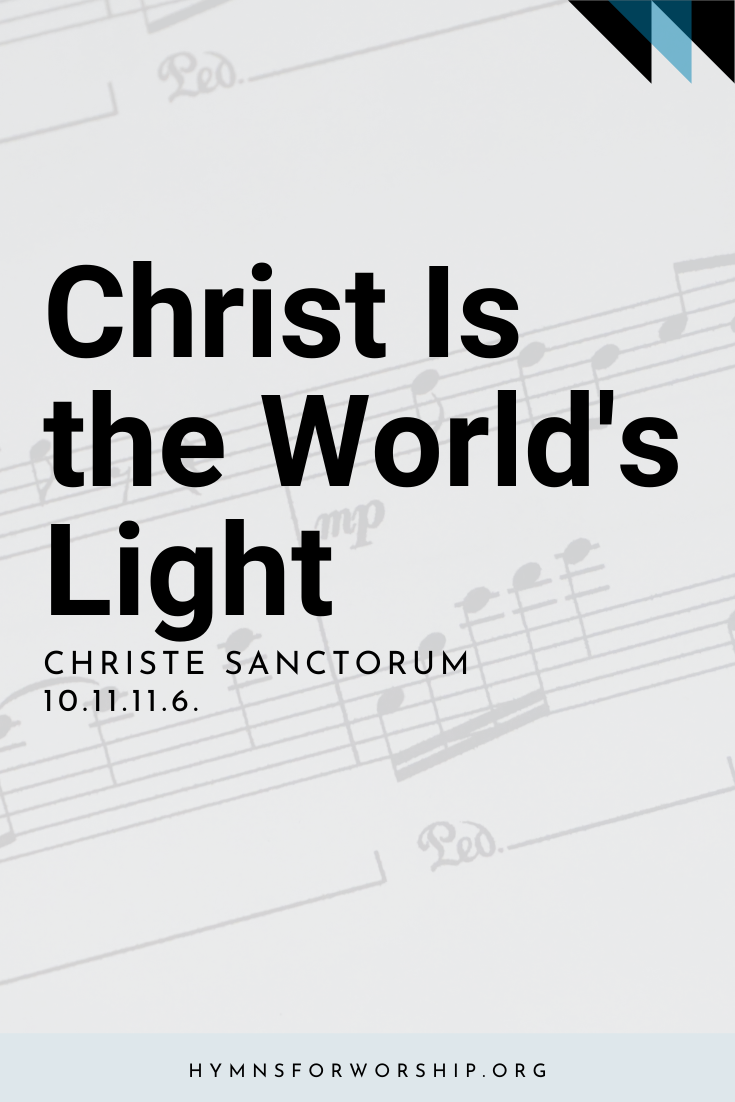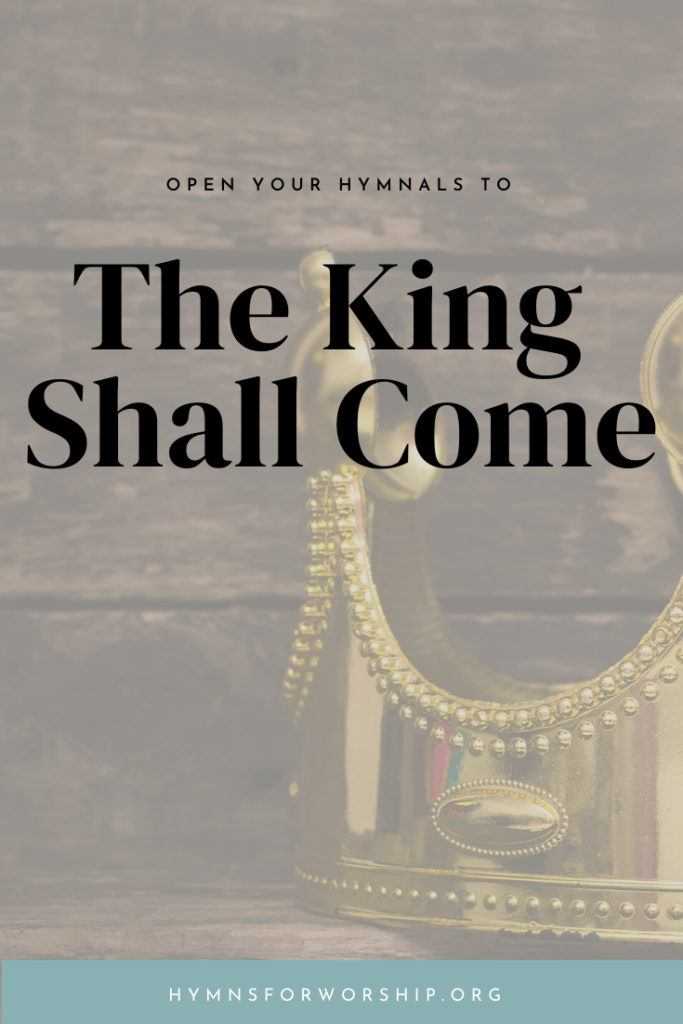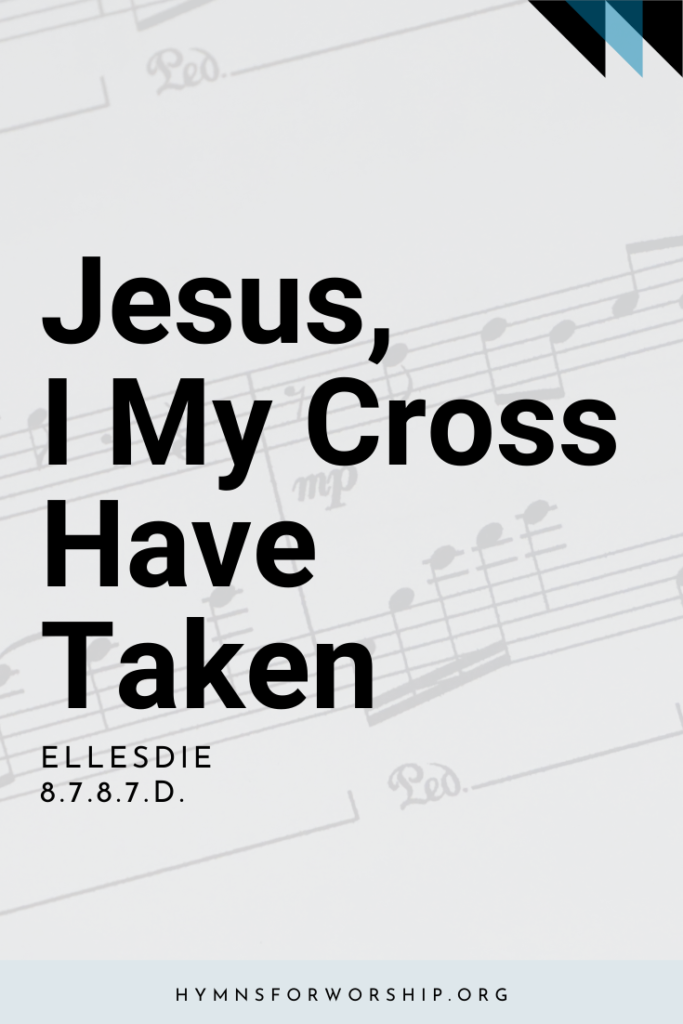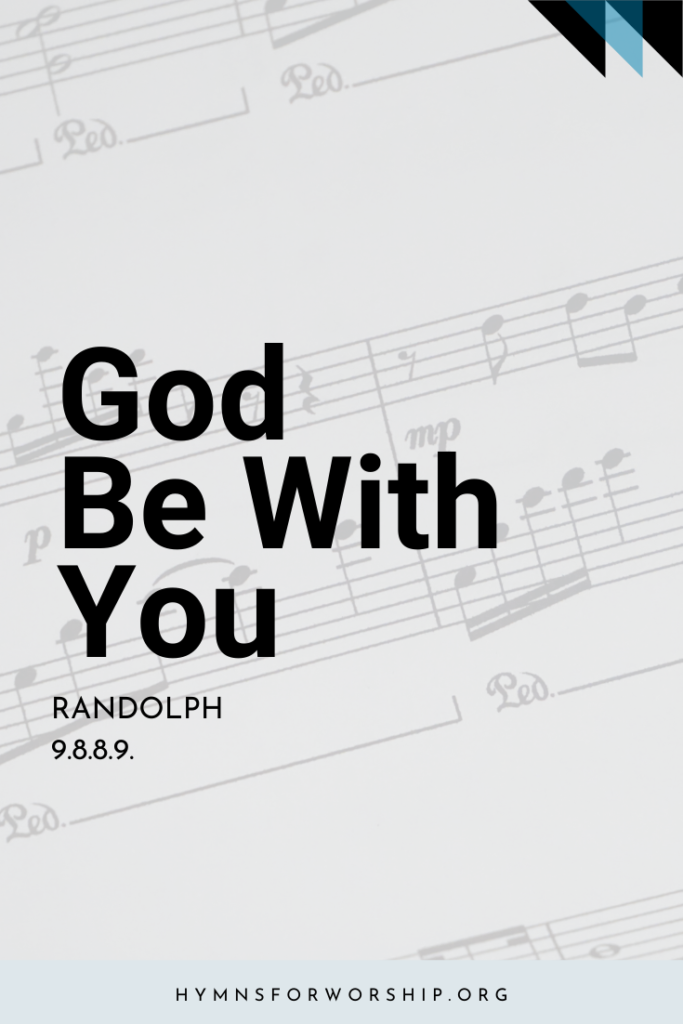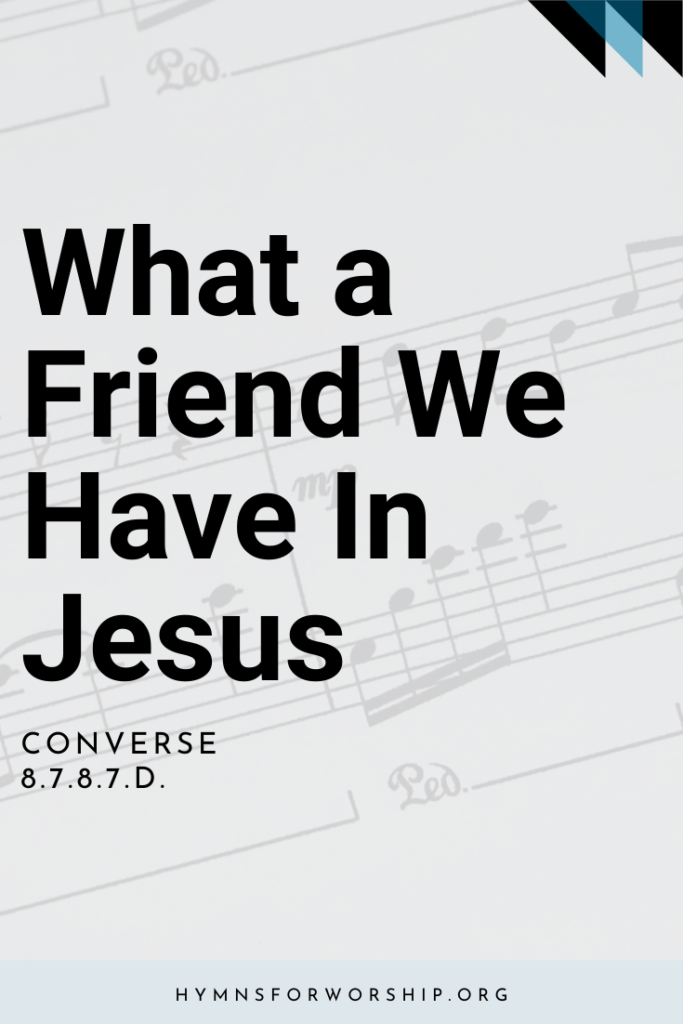JESUS CHRIST >> GLORY & PRAISE
SDAH 234
Christ is the world’s light,
Christ and none other;
born in our darkness,
He became our brother-
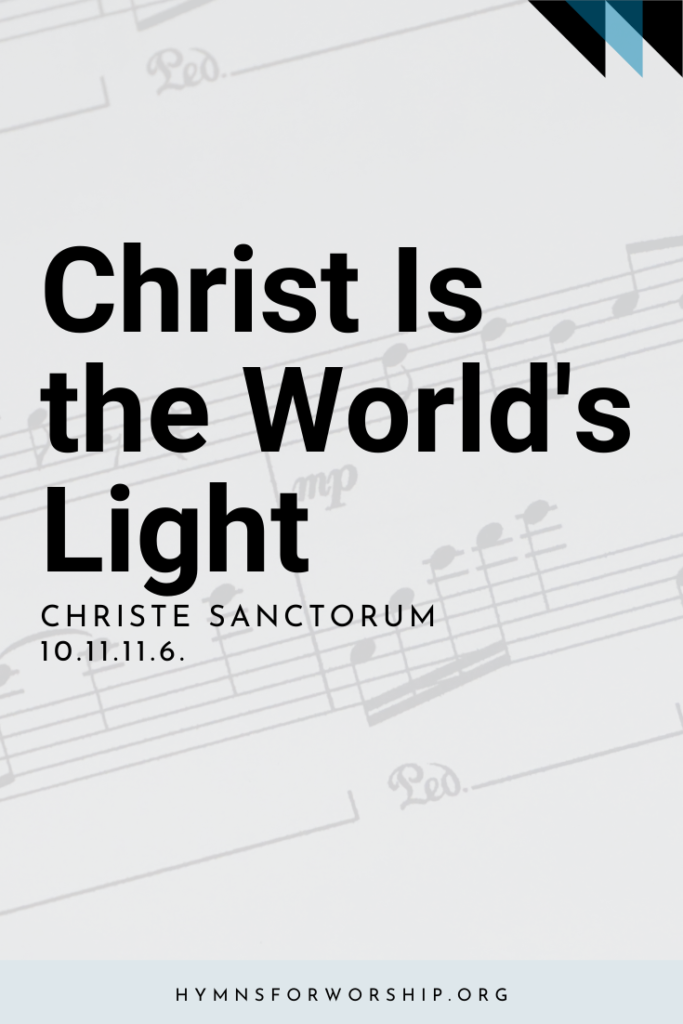

Text
1
Christ is the world’s light,
Christ and none other;
born in our darkness,
He became our brother-
if we have seen Him,
we have seen the Father:
Glory to God on high!
2
Christ is the world’s peace,
Christ and none other;
no one can serve Him,
and despise another.
Who else unites us,
one in God the Father?
Glory to God on high!
3
Christ is the world’s life,
Christ and none other;
sold once for silver,
murdered here, our brother-
He, who redeems us,
reigns with God the Father:
Glory to God on high!
4
Give God the glory,
God and none other;
give God the glory,
Spirit, Son and Father;
give God the glory,
God-with-us our brother:
Glory to God on high!

Hymn Info
Biblical Reference
(a) John 8:12; John 14:9 (b) Eph 2:14 (c) 1 John 5:12 (d) 1 John 4:20
Author
Fred Pratt Green (1903-2001)
Year Published
1969
Performance Suggestions
Unison
Copyright
Words copyright 1969 by Hope Publishing Co., Carol Stream, Il 60188. All rights reserved. Used by permission.
Hymn Tune
CHRISTE SANCTORUM
Metrical Number
10.11.11.6.
Tune Source
Melody from Paris Antiphoner, 1746
Hymn Score
Piano Accompaniment
Notes
Get to know the hymns a little deeper with the SDA Hymnal Companion. Use our song leader’s notes to engage your congregation in singing with understanding. Even better, involve kids in learning this hymn with our homeschooling materials.
The committee working in 1969 on a new hymnbook for the Methodist Church in Great Britain asked Fred Pratt Green (1903- ; see Biographies) to write a new text for this beautiful old melody. Poetically, it is in the verse form known as sapphic. Though excellent in the Latin language, this form is a little more difficult in English because of the so-called weak, or feminine, endings, which are unaccented on the last syllable, as in the word “singing”. The true Sapphic meter is 11.11.11.5. but Pratt Green shortened the first phrase to 10 syllables and compensated by adding one syllable to the final five, making it six. Then he strengthened it by repeating the first three lines in each stanza and added “Glory to God on high” as a kind of one-line refrain.
Called by Eric Routley (SDAH 13) a “great creedal utterance,… perhaps the most immediately successful hymn of the recent wave of modern hymn writing in Britain,” it was used as the only modern hymn at the service in Westminster Abbey, London, on October 5, 1972, when the Congregational and Presbyterian churches joined together to form the United Reformed Church. It has found its way into many hymnbooks in Britain, Canada, America, and Australia, as well as into translations for French and German hymnals.
In 1980 the Episcopal Church in America, wanting to use it in their new hymnal, asked Pratt Green for permission to make change that would eliminate the male-oriented words. He agreed, but requested that Christ still be “our brother,” and in the final stanza happily accepted the capitalization of the word “Man,” thus denoting the divinity of Christ. The Episcopal Church also asked for the word “Christ” to replace the sixth word “He” in the first three stanzas, but SDAH elected to accept the maleness of Christ as found in the Bible and leave it as Pratt Green originally wrote it.
The original source of this tune CHRISTE SANCTORUM was the French book Paris Antiphone, 1681. In eighteenth-century Europe there was a transition from the official plainsong chants of the Catholic Church, which were really sung speech with irregular accents and rhythms of speech, to measured rhythms that could be sung by a congregation. In this new form it was printed in La Feillee’s Nouvelle Methode de plain-chant, fifth edition; Paris, 1782. It takes it’s name from its association with the medieval hymn beginning “Christe sanctorum decus angelorum” (O Christ, the glory of the holy angels).
-from Companion to the Seventh-day Adventist Hymnal by Wayne Hooper and Edward E. White

